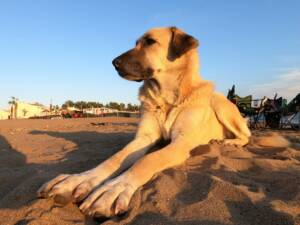
First of all, it’s important to remember that dogs, like humans, naturally have a scent. However, if that scent becomes overpowering or particularly unpleasant, it could signal an underlying issue that needs attention. There are a few common reasons why your dog might stink, and we’re here to explore those with you.
One of the most frequent causes of a smelly dog is poor grooming habits. Dogs need regular baths and brushing to keep their coat and skin healthy. Without proper grooming, dirt, oils, and bacteria can build up, leading to an unpleasant odor. Additionally, if your dog has long hair, it may be more prone to trapping dirt and moisture, which can contribute to a stinky pup. Ensuring that your dog receives regular grooming and brushing can go a long way in preventing and addressing unpleasant odors.
Another potential cause of a stinky dog is skin issues. Just like humans, dogs can experience skin conditions such as infections, allergies, or even hormonal imbalances that can lead to an unpleasant smell. If your dog is scratching excessively, has red or irritated skin, or is showing signs of discomfort, it’s essential to consult with a veterinarian to determine the underlying cause of the issue. Addressing any skin problems can not only help eliminate the odor but also improve your dog’s overall comfort and well-being.
Diet plays a significant role in a dog’s overall health, including their scent. Low-quality or inappropriate food choices can lead to digestive issues, which in turn can result in a smelly dog. Additionally, some dogs may have food allergies that can manifest in skin problems and odors. Ensuring that your dog is eating a balanced and appropriate diet for their age, size, and breed can help promote good overall health, including a pleasant scent.
It’s important to recognize that while occasional doggy odors are normal, a consistently strong or foul smell should be investigated. In some cases, a persistent odor could be a sign of an underlying health issue that requires attention. Consulting with a veterinarian can help rule out any potential health concerns and provide guidance on how to address the problem effectively.
In conclusion, it’s essential to pay attention to your dog’s grooming, skin health, and diet to help prevent and address any unpleasant odors. Regular grooming, a healthy diet, and prompt attention to any skin issues can go a long way in keeping your dog smelling fresh and clean. Remember, your dog’s well-being is at the heart of addressing any odor issues, so be sure to consult with a professional if you have concerns about your dog’s scent.






